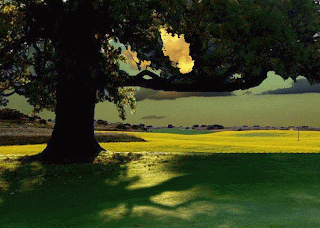The Great Horned Owl, a majestic avian predator with piercing yellow eyes and distinctive feather tufts, often captures the imagination. Their imposing size and nocturnal habits evoke a sense of mystery, leading some to ponder the possibility of keeping one as a pet. This, however, is a complex issue riddled with legal restrictions and ethical considerations. It’s essential to eschew fanciful notions and confront the stark realities of owl ownership.
The Legal Labyrinth: Navigating Federal and State Regulations
Owning a Great Horned Owl is seldom a simple matter of preference. Federal and state laws heavily regulate the possession of raptors, including owls. The primary piece of federal legislation governing migratory birds, including Great Horned Owls, is the Migratory Bird Treaty Act (MBTA). This act, enforced by the U.S. Fish and Wildlife Service, prohibits the taking, possessing, importing, exporting, selling, purchasing, or bartering of any migratory bird, or the parts, nests, or eggs of such a bird, except under the terms of a valid permit.
What constitutes “taking” is broad, encompassing actions that directly or indirectly harm a migratory bird. In essence, keeping a Great Horned Owl as a pet without proper authorization is a violation of federal law, potentially leading to hefty fines and even imprisonment. Obtaining a permit is not easily achievable. Permits are generally issued for specific purposes, such as falconry, scientific research, or educational displays. Private ownership purely for companionship is almost universally disallowed. Falconry permits, for instance, require rigorous training, apprenticeship under a licensed falconer, and specialized facilities to house and care for the bird.
State regulations further complicate the picture. Many states have their own laws protecting birds of prey, often mirroring or exceeding the federal requirements. These regulations may impose additional restrictions on possessing, transporting, or rehabilitating owls. Even if one were to hypothetically secure a federal permit, compliance with state laws is paramount. Failure to adhere to both federal and state mandates can result in severe legal consequences.
Ethical Quandaries: Welfare and the Owl’s Natural Ecology
Beyond the legal hurdles, profound ethical concerns surround the keeping of Great Horned Owls as pets. These magnificent creatures are adapted to a life of freedom, hunting across vast territories and engaging in complex social interactions. Confining them to a domestic setting invariably compromises their well-being.
Consider the dietary requirements of a Great Horned Owl. In the wild, their diet consists primarily of small mammals, birds, and insects. Meeting these nutritional needs in captivity is challenging and often requires providing whole prey items, such as rodents or chicks. Moreover, replicating the natural hunting experience, which is crucial for their physical and mental health, is virtually impossible in a domestic environment. The absence of natural stimulation can lead to boredom, stress, and behavioral abnormalities, such as feather plucking or repetitive movements.
Furthermore, Great Horned Owls possess sharp talons and powerful beaks, posing a significant risk to humans. While they may not intentionally attack their caretakers, accidental injuries can occur. The inherent danger associated with handling these birds underscores the ethical dilemma of keeping them as pets. Confining a predator of this caliber to a domestic environment not only deprives it of its natural instincts but also places both the owl and the human in potentially precarious situations.
The nocturnal nature of Great Horned Owls also presents practical challenges. Their activity patterns clash with the typical human schedule, potentially leading to disturbances and sleep deprivation for the owner. The nocturnal vocalizations of these birds, characterized by deep hooting calls, can be disruptive to neighbors and may even violate local noise ordinances.
Alternatives to Ownership: Appreciating Owls Responsibly
Instead of attempting to keep a Great Horned Owl as a pet, there are numerous responsible ways to appreciate and support these fascinating creatures. Supporting local wildlife rehabilitation centers is a crucial step in protecting owls and other raptors. These centers provide care for injured or orphaned owls, with the ultimate goal of releasing them back into the wild. Donating to these organizations helps ensure that they have the resources to continue their vital work.
Becoming involved in citizen science initiatives, such as owl monitoring programs, is another excellent way to contribute to owl conservation. These programs often involve surveying owl populations, tracking their movements, and collecting data on their habitat use. Participating in these initiatives allows individuals to learn more about owls while actively contributing to their protection.
Visiting reputable zoos and wildlife sanctuaries that house Great Horned Owls can provide opportunities to observe these birds up close in a controlled environment. These facilities often offer educational programs that teach visitors about owl biology, ecology, and conservation. Supporting these organizations helps promote responsible wildlife tourism and conservation efforts.
Ultimately, the allure of owning a Great Horned Owl is often rooted in a misguided fascination. True appreciation for these magnificent birds lies in respecting their wild nature and supporting efforts to protect their habitats and ensure their survival in their natural environments. The legal and ethical considerations surrounding owl ownership are substantial, and the welfare of the animal should always be the paramount concern. Embracing responsible alternatives allows us to celebrate the beauty and wonder of Great Horned Owls without compromising their well-being.
